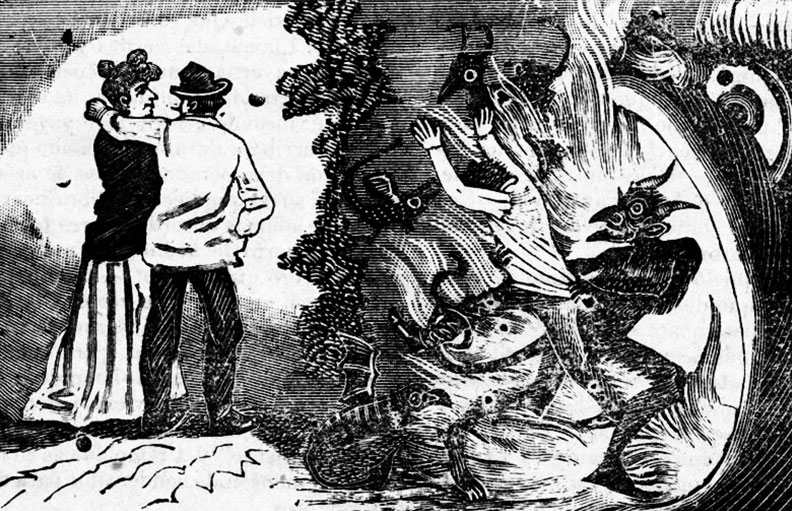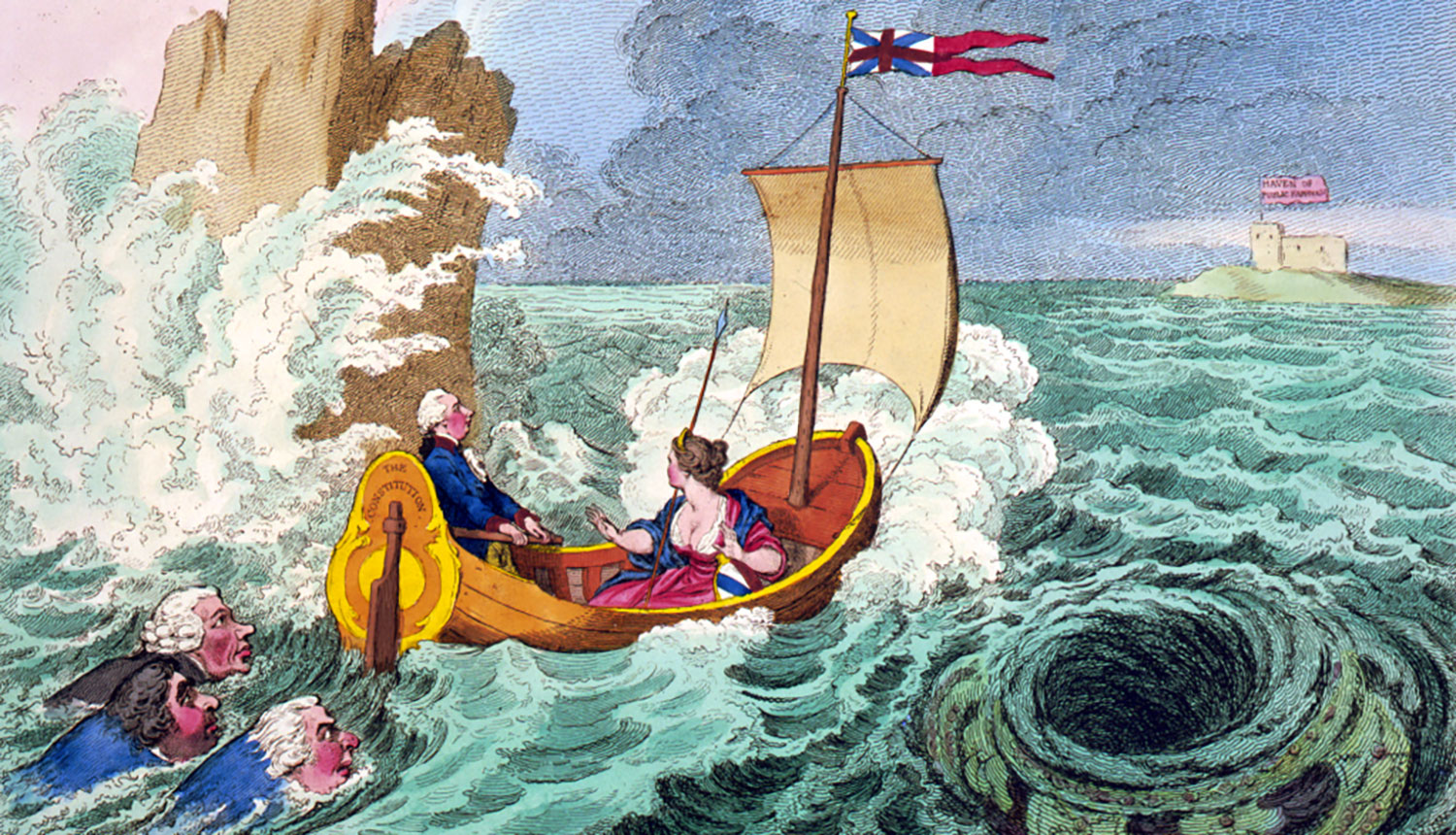April 2013
remarks on teaching
11 April 2013, around 10.40.

Students in the English club.
After five years of teaching and team-teaching and teacher-training and observing lessons, I look at this picture and still cringe that one of the students is texting. It’s a club, sure, but do me the favor of paying attention.1 Students paying attention isn’t the point of English classes or clubs, though; it took me a while to learn that. Administratively, the point of these classes is for students to sit and endure the 40 minutes from one bell to another without doing more damage to themselves or to school property than is strictly necessary. To many of the teachers I’ve worked with, the point of these classes is for students to complete the maximum number of exercises with the minimum amount of noise and effort or planning from the teacher.2 Both of these attitudes came as a surprise to me (I must have been either a remarkably obtuse student or extraordinarily lucky in my schooling not to have noticed this before) when I started teaching, because I thought the point of teaching was to develop a rapport between teacher and student to communicate information, understanding, and – most importantly – a desire to learn in as useful and pleasant a way as possible. That, I see now, is not what state-run schools are for:
Those who employ teachers see them as more than workers who present the official curriculum to the students. A computer or television system could make such a presentation. An important role of the schools is socialization: the promulgation of an outlook, attitudes and values. For example, the schools prepare students for the labor force not just by teaching them arithmetic, English, history and so on, but also by teaching them to follow instructions, adhere to a rigid time schedule, respect authority and tolerate boredom. Lessons in this ‘hidden curriculum’ are taught as much in the numerous school–student interactions not involving the official curriculum as in those interactions that do. The employer trusts the teaching professional to manage these interactions in such a way as to advance the proper values. […] It is revealing that teachers who do question the curriculum attract the attention of school administrators, while teachers who are simply incompetent at teaching it tend to be ignored. (Indeed, when teachers are fired it is rarely for not teaching well.)
- He has the same problem in class – apparently he’s a star wrestler and frequently misses class to attend competitions; even when he’s physically present in the class, though, he’s just not there. [↩]
- This is not true of all the teachers I’ve worked with closely, but is true enough as a generality to bear mentioning; more annoying to me than the student texting or answering calls in class is the teacher who flips through the textbook for five minutes after the bell rings and asks the students what lesson they are studying. [↩]
- No page number, sorry: I read the ebook. [↩]
A view (36)
14 April 2013, around 5.31.

Out and about.
2666
17 April 2013, around 5.07.

‘Ejemplar Acontecimiento! Un Espiritu maligno en figura de mujer bonita’ (cf.)
The style was strange. The writing was clear and sometimes even transparent, but the way the stories followed on after another didn’t lead anywhere: all that was left were the children, their parents, the animals, some neighbors, and in the end, all that was really left was nature, a nature that dissolved little by little in a boiling cauldron until it vanished completely (887).
2666 has many attractions: it’s posthumous (which is always interesting), it has murder, books, writers, detectives, mystery, and even vampires. Reading it, though, I felt its publisher did it a disservice by printing it in one volume. Although the five parts are supposed to comprise one whole, the sum of those parts is greater than the whole; they would have made more sense appearing over a span of years instead of pressed together as a cenotaph. It’s an unfinished work, a failure as a work of art, though more brilliant as an attempt than many ‘triumphs’ of modern literature.1 Bolaño tries to head off this criticism and to lay the blame on the weakness of the reader in several places, most notably in the much quoted passage:
Now even bookish pharmacists are afraid to take on the great, imperfect, torrential words, books that blaze paths into the unknown. They choose the perfect exercises of the great masters. Or what amounts to the same thing: they want to watch the great masters spar, but they have no interest in real combat, when the great masters struggle against something, that something that terrifies us all, that something that cows us and spurs us on, amid blood and mortal wounds and stench (237).
It’s obvious 2666 is such a book – or that Bolaño sees it as one: a struggle against death, against mortality. The more I read of it, the more I respected it; but it’s not a masterpiece and I kept wanting to read the book it might have been had time allowed – or, at the very least, a better book by the same author. It’s not a bad book – quite the opposite – but I couldn’t get over the feeling that every word I read screamed: ‘I am a literary novel, you must respect me’ – which is I suppose what they mean when they say that a novel is ‘compelling’. Compulsion rather defeats the purpose of that respect, though, doesn’t it?2
- You may choose whatever name suits your fancy to imagine in this footnote; be cruel, be cutting, be true. [↩]
- Cf. Virginia Woolf in A Writer’s Diary (7 Feb. 1931):
Here in the few minutes that remain, I must record, heaven be praised, the end of The Waves. I wrote the words O Death fifteen minutes ago, having reeled across the last ten pages with some moments of such intensity and intoxication that I seemed only to stumble after my own voice, or almost, after some sort of speaker (as when I was mad) I was almost afraid, remembering the voices that used to fly ahead. Anyhow, it is done…
[↩]
Crambe repetita (27)
19 April 2013, around 10.00.
M. d’Arblay, therefore, has fixed upon a field of Mr Locke’s, which he will rent, and of which Mr Locke will grant him a lease of 90 years. By this means, we shall leave the little Alex: a little property besides what will be in the Funds, and a property likely to rise in value, as the situation of the field is remarkably beautiful. It is in the valley, between Mr Locke’s park and Dorking, and where Land is so scarce, that there is not another possessor within many Miles who would part, upon any term, with half an Acre. My kindest Father will come and give it, I trust, his benediction. I am now almost jealous of Bookham for having received it. — Imagine but the extacy of M. d’Arblay in framing All his own way an entire new Garden! He dreams now of Cabbage Walks — potatoe Beds — Bean perfumes and peas’ blossoms. My Mother should send him a little sketch to help his Flower Garden, which will be his second favourite object (14 Oct. 1796).
* * *
…the sheep followed, who have eaten up All our Greens — Every sprout and Cabbage and Lettuce, destined for the Winter — while the Horses dug up our Turnips and carrots (22 March 1800).
* * *
I am, at present, wholly consigned to aiding his preparations — to me, I own, a most melancholy task, — but which I have the consolation to find gives pleasure to our mutual Friends, glad to have him, for a while, upon such conditions, quit his spade and his Cabbages (11 Feb. 1802).
the dim view
21 April 2013, around 5.17.
By sacrificing thought, which in its reified form as mathematics, machinery, organization, avenges itself on a humanity forgetful of it, enlightenment forfeited its own realization. By subjecting everything particular to its discipline, it left the uncomprehended whole free to rebound as mastery over things against the life and consciousness of human beings. But a true praxis capable of overturning the status quo depends on theory’s refusal to yield to the oblivion in which society allows thought to ossify. It is not the material preconditions of fulfillment, unfettered [technical forces of production/technology] as such, which make fulfillment uncertain. That is the argument of sociologists who are trying to devise yet another antidote, even a collectivist one, in order control that antidote [sic]. The fault lies in a social context which induces blindness. The mythical scientific respect of people for the given reality, which they themselves constantly create, finally becomes itself a positive fact, a fortress before which even the revolutionary imagination feels shamed as utopianism, and degenerates to a compliant trust in the objective tendency of history.
- Would that density of prose meant density of thought. [↩]
Old Books and New Histories
26 April 2013, around 18.58.
This is an introductory ‘state of the discipline’ textbook suitable for undergraduates or first-year graduate students. It gives a brief overview of what is involved in studying ‘book history’, as well as current theories and controversies. From the preface:
These approaches are made through literary studies, bibliography, and history, disciplines with very different and sometimes conflicting problematics, which converge upon a phenomenon that is simultaneously a written text, a material object, and a cultural transaction – the book.
The book includes the following sections, the contents of which are more or less as they sound.
- Disciplinary Boundaries and Interdisciplinary Opportunities
- Mapping the Interdisciplinarities
- Models of the Book’s Place in History
- Where is the Book in History?
- Cross-Disciplinary Observations: The Mutability of Texts, Print, and Readings
- Janice Radway. Reading the Romance: Women, Patriarchy, and Popular Literature. Chapel Hill: UNC Press, 1984 and A Feeling for Books: The Book-of-the-Month Club, literary taste, and middle-class desire. Chapel Hill: UNC Press, 1997.
- Michele Moylan & Lane Stiles. Reading Books: essays on the material text and literature in America. Amherst: UMass Press, 1996.
- William St. Clair. The Reading Nation in the Romantic Period. Cambridge: CUP, 2004.
- Peter D. McDonald. British literary culture and publishing practice, 1880–1914. Cambridge: CUP, 1997.
- Cyndia Clegg. ‘History of the Book: An Undisciplined Discipline?’ Renaissance Quarterly, Vol. 54, No. 1 (Spring, 2001), pp. 221–245.
- Joseph Dane. The Myth of Print Culture: Essays on Evidence, Textuality, and Bibliographical Method. Toronto: University of Toronto Press, 2003.
the arrow of time
27 April 2013, around 17.53.

An enlightened voyage: ‘The Vessel of the Constitution
steered clear of the Rock of Democracy,
and the Whirlpool of Arbitrary Power’
From antiquity to fascism, Homer has been criticised for garrulousness – both in the hero and in the narrator.
Nestor, as you will recall, was a bit of a windbag; very much the elder statesman, he offered good advice wrapped in so much reminiscence and waffle it’s a wonder the Trojan war didn’t last another ten years while the Achaeans sat on the shore listening. When I first started reading The Dialectic of Enlightenment, it struck me as rather Nestorian: there are good ideas and observations, interred in turgid prose and preposterous waffle. You will recall, of course, the main good idea: progress, civilization, and ‘enlightenment’1 do not lead to progressive, civilized, or enlightened behavior; in fact, cultural and technological ‘progress’ contain the seeds of the most oppressive, regressive, brutal dehumanization at all social levels.2 The equivocation will follow.
I’d been having difficulty with The Dialectic of Enlightenment from the very first. Initially, I worried that I needed to be in a suitably attentive frame of mind in order to understand it fully: it was a thinking book and I needed to be a thinking reader.3 Paying attention while reading can be so tiresome, especially if one has been reading detective stories like they were being banned tomorrow. A week or so ago, I tried The Dialectic again, read a little faster, and got on a little better. Until I got to the ‘excursus’ on the Odyssey, which vexed me.
I’ve read the ‘excursus’ three times now, which is probably more than it deserves.4 The first time I was very angry; the second time I was incensed. What sort of nonsensical literary interpretation refers to Odysseus’ bed as:
durable amateur handiwork: as a prototypical bourgeois he is smart enough to have a hobby […] a resumption of the craft work from which, within the framework of differentiated property relations, he has long since been exempted (58).
Makes it sound like he ran down to Home Depot after reading the last three issues of Dwell and put ‘wood-working’ on his CV under ‘interests’.5 Worse still, Odysseus himself is reduced to ‘the prototype of the bourgeois individual, whose concept originates in the unwavering self-assertion of which the protagonist driven to wander the earth is the primeval model’ (35) and:
Odysseus’s athletic accomplishments are those of the gentleman who, free of practical cares, can train himself in lordly self-mastery (44).
So obviously he’s a fan of protein powder smoothies and the weights circuit at the local gym.6 These interpretations are so silly and the tone so ardently patronizing, that I would have given the book up as a bad job had I not already read Minima Moralia and known that Adorno was cleverer than he was letting on in this intellectual stroll down the garden path.7
As I said, it vexed me the first two times I read it; since Adorno seemed pretty vexed, too, I didn’t take it personally.8 No, that’s a lie. I took it very personally. When one reads a work of criticism about a particular cultural artifact, one expects the essay or article or excursus to be about that artifact – as though the author were there in the room talking about his (or her) clever notions about the thing at hand, without distraction. That is not the case here. Adorno was not talking to me, the reader – I felt that instantly; there was someone (something) else in the room. Even now I cannot quite decide what (or who) that presence is: it could be Hegel, or Marx, or Nietzsche, or the Nazis, or the Holocaust, or everything all together.9
The third time I read the excursus, however, I set aside some of my irritation and noticed something odd: Adorno discusses the Odyssey solely in terms of subsequent developments. Odysseus is bourgeois; the book itself is ‘closer in form to the picaresque novel’ than the Iliad (38);10 ‘ the Odyssey is already a Robinsonade’ (48). The flowering of adventure and individuality and violence in the Odyssey are for Adorno necessarily precursors of things to come; because Odysseus slaughters the suitors and blinds Polyphemus, the Holocaust is the necessary consequence. Adorno is a determinist, poor soul, and wants to use words to turn back the arrow of time. If he could unravel the Odyssey not on its own terms, but in terms of everything that came after, then everything that came after might be … different – explicable perhaps. Realizing this, I felt very sad, and lost interest in fighting with the injustice of his interpretations. There are greater injustices after all, and this was and is not a ‘thinking’ book: it is a sophisticated, shattered call to arms for a battle already lost and unwinnable.
History is too massive a knot for one person to untangle – or even a whole raft of historians and specialists and weary souls who’ve given their lives to libraries and universities in exchange for cheap wine, stale canapés, and an illusory security.11 It takes a hero to do that; and heroes don’t play the game honestly: they never did. Only a fool would imagine that the game isn’t rigged, that life is fair, that good will conquer in the end. These are moral ideas, moral categories – mere human invention; existence is amoral: it is, without qualification.12 And there aren’t any heroes anymore, anyhow, to cut through the Gordian knot of the past and turn it into sense even for a moment. There never were, I suppose.
- Capitalized or not, as you prefer. [↩]
- A bit of an over-simplification, but there you have it. [↩]
- That I would need to take up thinking as a middle-aged middle-manager takes up again on weekends the racquetball at which he excelled in his youth. [↩]
- This coyness, Teddie, were no crime… but there are other books to read, and probably better ones, too. [↩]
- Why is his father out farming if the royal family is free from work? Or is the old man just pottering about with ornamental espaliers instead of producing essential household foodstuffs? [↩]
- Which is obviously why Telemachus is also able to string the bow: he’s free of practical cares. I am not even going to begin on Adorno’s comparisons of Odysseus to ‘oriental merchants’. [↩]
- The inversion of expectations of female behavior, i.e. Calypso and Circe acting in a way like bourgeois housewives and Penelope acting like a ‘harlot’ looked like a more interesting avenue for thought, but is reduced to an aside (54–8). [↩]
- I’m going along with the notion that Adorno wrote this particular chapter, however much Horkheimer may have added to it during the process of revision; the excursus on the Odyssey is the second chapter in the book, so I didn’t get very far. [↩]
- An alarming prospect. [↩]
- Not to be developed for a few centuries, but a valid enough observation. [↩]
- Okay, so I’m not immune to addressing someone ‘not in the room’, as it were. [↩]
- Which in some ways seems like quite a big enough limb to be going out on without worrying about turning human civilization into some bathetic vampire story, ‘nature, red in tooth and claw’ &c.: a sickly and, dare I say, rather bourgeois way to look at it. [↩]
An Undisciplined Discipline?
29 April 2013, around 5.40.
A dispassionate, professional review article on a selection of books relating to books, literacy, and print culture in the Renaissance (including Johns, The Nature of the Book which Clegg pans for naive scholarship and erroneous generalizations); begins with a survey of discipline of book history (and the history of that discipline), then provides a careful analysis of the strengths and weaknesses of the eight books under review, and focusses on the difficulty of successful interdisciplinarity. Book history as an interdisciplinary field can be fruitful, but the works of any one scholar are likely to be flawed by his or her disciplinary allegiances (to say nothing of his or her flaws as a scholar):
The great strength of the books considered here is that together – in a full complement – they advance our understanding of authorship, textual authority, reading practices, and the political implications of printed texts in Renaissance Italy and early modern England. […] Taken individually, however, each of these books reveals that however much the history of the book needs to be an ‘interdisciplinary endeavour’, to practice interdisciplinary scholarship requires more than becoming conversant in the recent literature of another discipline; it requires a certain humility in the face of long traditions of bibliographic, historiographic, and critical practice, and a willingness to acknowledge and incorporate these precedents along with often unaccustomed methodologies (245).
Books & articles to add to reading list
- Douglas Brooks. From Playhouse to Printing House. Cambridge: CUP, 2000. Useful complement to Johns, The Nature of the Book.
- Frances E. Dolan. Whores of Babylon: Catholicism, Gender and Seventeenth-Century Print Culture. Ithaca: Cornell UP, 1999. Gunpowder plot and other plots under consideration; difficulties of being a Catholic, etc.
- Suzanne Hull. Chaste, Silent and Obedient: English Books for Women 1475–1640. San Marino: Huntington Library, 1982.
- Brian Richardson. Printing, Writers and Readers in Renaissance Italy. Cambridge: CUP, 1999. Solid on the history, weaker on the theory.
- Eve Rachelle Sanders. Gender and Literacy on Stage in Early Modern England. Cambridge: CUP, 1998. Readings of women’s roles in theatre.
- Kevin Sharpe. Reading Revolutions: The Politics of Reading in Early Modern England. New Haven: Yale UP, 2000. Provides reading of Sir William Drake’s commonplace books and marginalia and tries to demonstrate how his reading and politics influenced and changed each other.
repetitio principii
29 April 2013, around 5.47.
…life’s earnestness is in no way to sit on the sofa and pick one’s teeth…
In Repetition Kierkegaard tells the story of two trips to Berlin – one of his attempts to prove the theory of repetition. On the first trip he had a grand time, stayed in a fine apartment, drank good coffee, enjoyed the theatre; the second time, he tried to repeat the experience. He tried to stay in the same apartment, but the landlord had lately married and was living there himself; our narrator was left to a rather dismal room haunted by a disturbing chair. The coffee in his favorite café was foul, the theatre inane, and the streets awhirl with dust, since it was summer on this trip instead of winter. He is frustrated: repetition had failed. But was it repetition? Was not the recollection of that previous trip a snare for which our poor narrator had fallen? One cannot have the same experience twice – this is the pitfall of both hope and remembrance: the desire to step in the same river twice. Repetition enjoys the daily view of the river from the living room window; or is repetition a matter of standing in the river the whole time? I’m not quite sure.1
…he who does not grasp that life is repetition and that this is the beauty of life, has condemned himself and deserves nothing better than what will happen to him – death. Hope is an enticing fruit that fails to satisfy, recollection sorrowful sustenance that fails to satisfy. But repetition is the daily bread that satisfies through blessing. […] He who chooses repetition, he lives. He does not chase after butterflies like a child, or stand on tiptoe in order to glimpse the wonders of the world. He knows them. Neither does he sit like an old woman and spin on the spinning wheel of recollection. He goes calmly about his life, happy in repetition. What would life be without repetition? Who would want to be a table on which life wrote something new every moment, or a memorial to something past?
- Cf. ‘Hope is new attire, stiff and starched and splendid. Still, since it has not yet been tried on, one does not know whether it will suit one, or whether it will fit. Recollection is discarded clothing which, however lovely it might be, no longer suits one because one has outgrown it. Repetition is clothing that never becomes worn, that fits snugly and comfortably, that neither pulls nor hangs too loosely’ (3). [↩]
